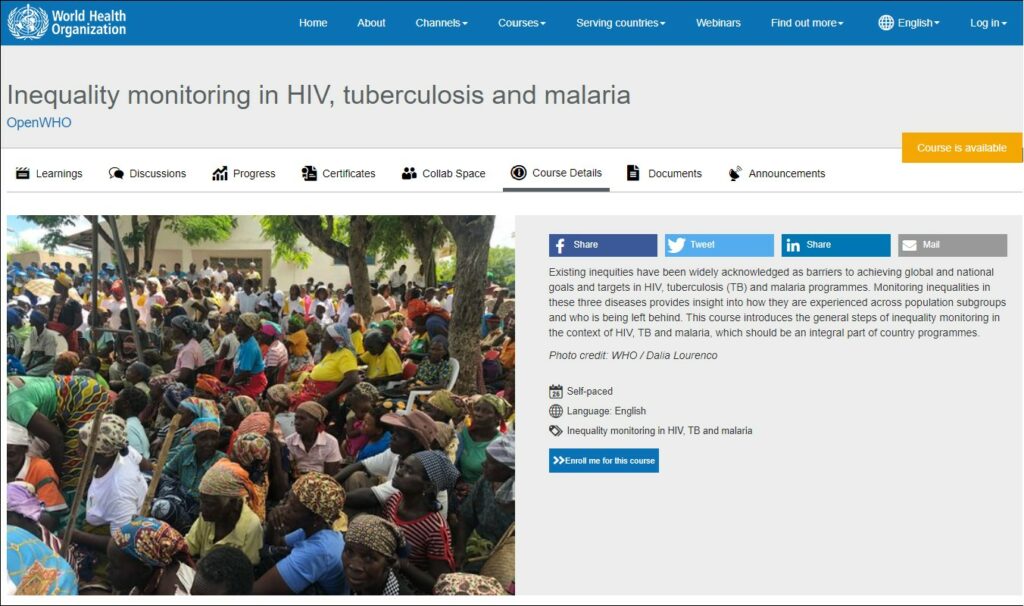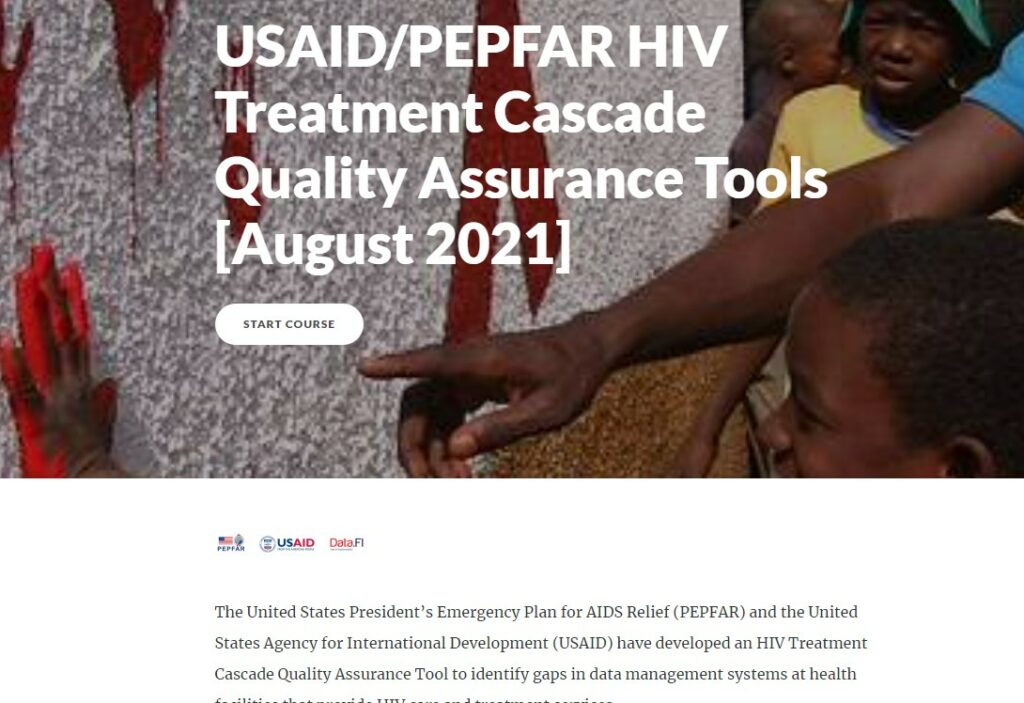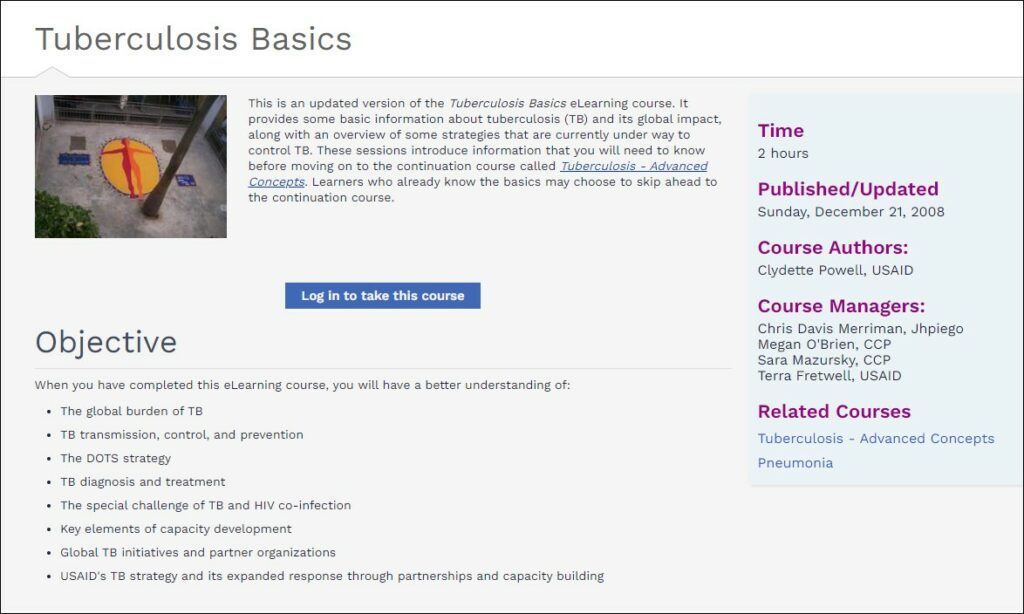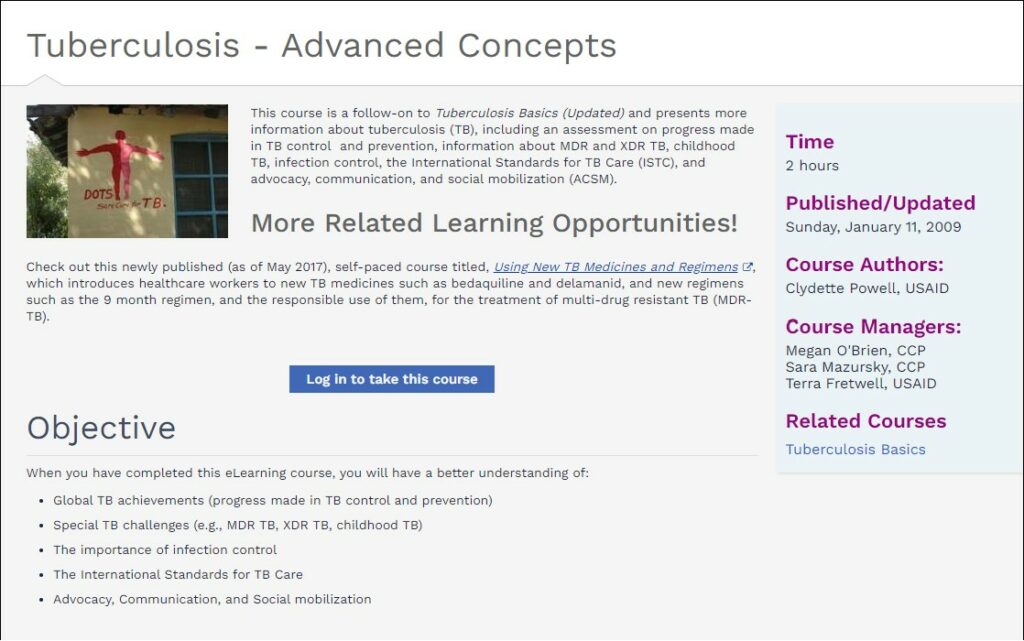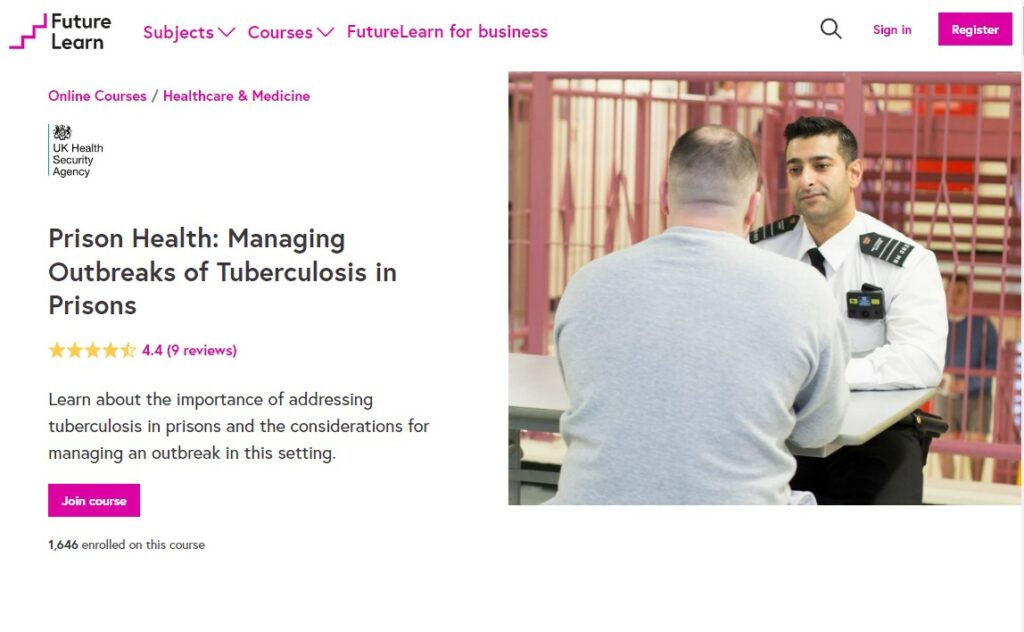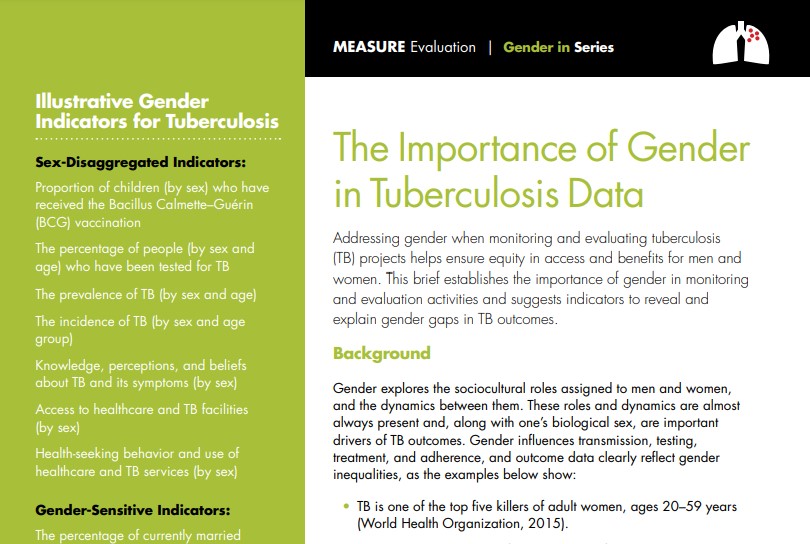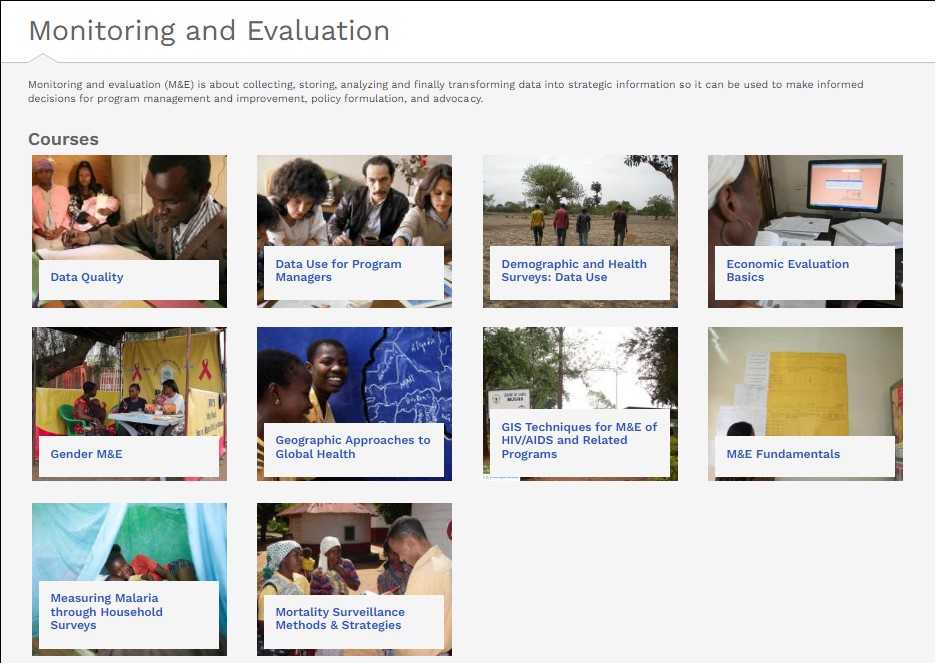- You are here»
- Resources»
- Capacity Strengthening»
Capacity Strengthening
Strengthening capacity is a critical part of TB DIAH’s strategy to optimize the demand, analysis and use of routine and non-routine tuberculosis (TB) data.
On this page you can find a collection of online learning opportunities, performance support guidance and other resources from TB DIAH and partners working to strengthen TB programming, policies and performance management.
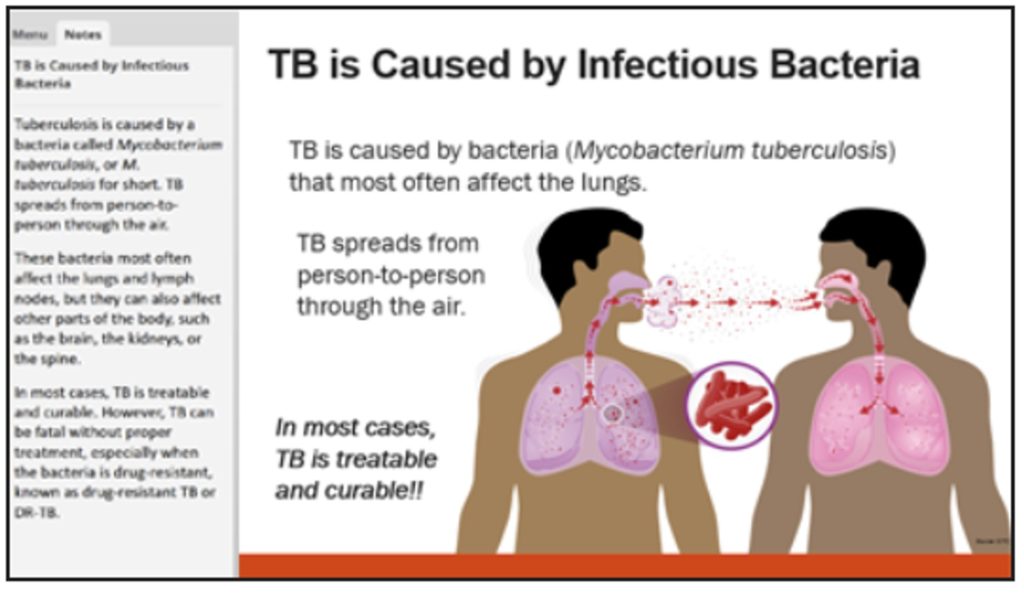
TB Contact Investigations for Frontline Workers
Description: This online course presents essential information about TB contact investigation (TBCI) needed by frontline healthcare providers, public health staff, and community health workers to enable the implementation of TBCI programs on the ground level.
Source: USAID and TB DIAH
Year: 2022
Time to complete: Three and a half hours
Languages: English, French, and Portuguese—Russian coming soon
Link: https://training.tbdiah.org/
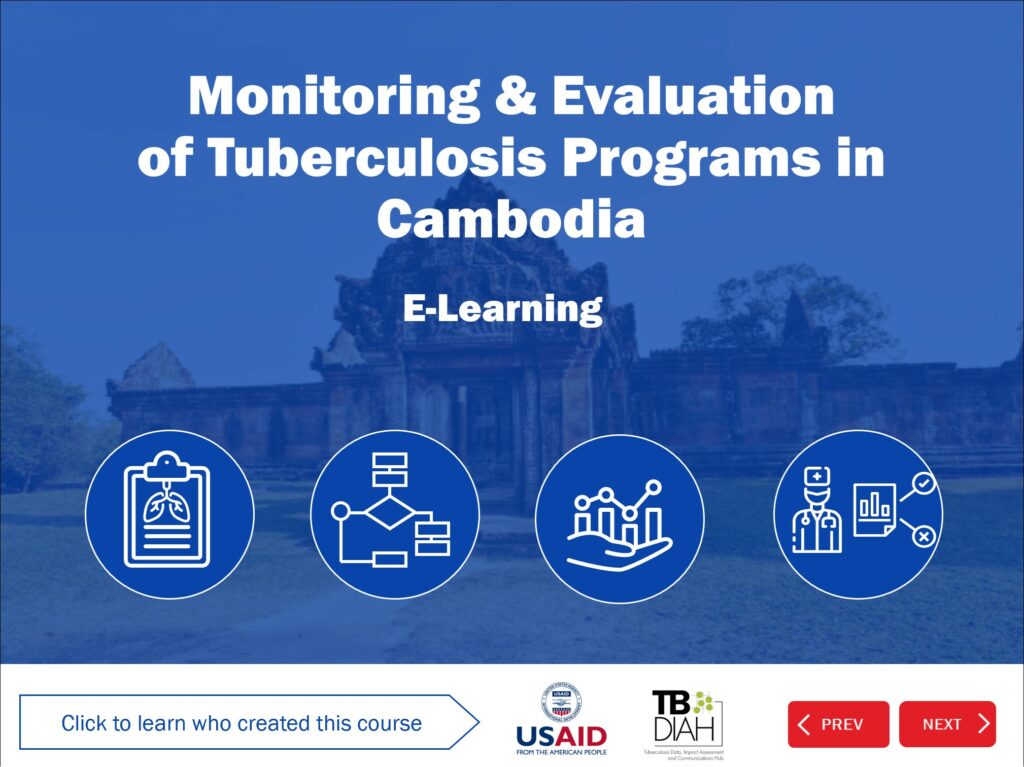
Monitoring and Evaluation (M&E) of TB Programs in Cambodia: Self-paced Online Learning
Description: Developed in partnership between CENAT and TB DIAH, this online course is designed to increase knowledge of TB M&E among practitioners responsible for the monitoring and evaluation of TB programs in Cambodia. The course included pre- and post-course knowledge assessments and modules covering TB program M&E, data quality assurance, and data analysis, interpretation, and use.
Source: CENAT
Year: 2022
Time to complete: Approximately three hours total
Languages: English, Khmer
Link: https://www.tbdiah.org/countries/cambodia/guidance-tools/cenat_learning/
Inequality Monitoring in HIV, TB, and Malaria
Description: Existing inequities have been widely acknowledged as barriers to achieving global and national goals and targets in HIV, TB, and malaria programs. Monitoring inequalities in these three diseases provides insight into how they are experienced across population subgroups and who is being left behind. This course introduces the general steps of inequality monitoring in the context of HIV, TB, and malaria, which should be an integral part of country programs.
Source: WHO
Time to complete: Approximately two hours
Languages: English
Link: https://openwho.org/courses/inequality-monitoring-hiv-tb-malaria
USAID/PEPFAR HIV Treatment Cascade Quality Assurance Tools
Description: This online training workshop was designed to prepare users to plan and undertake rapid and robust data quality assessments (DQAs), with a particular emphasis on HIV treatment data. This training provides participants with guidance and tips on the implementation and applications of DQAs to improve HIV reporting. The tools and resources in this training also facilitate efforts to improve and support patient monitoring systems to improve data quality and data use for program quality improvement.
Source: Data.Fi, funded by USAID and PEPFAR
Year: 2021
Languages: English
Link: https://rise.articulate.com/share/XpRRm67wrtb8r_Bs9xLfieMZtSBvmFzw#/ (contact datafiproject@thepalladiumgroup.com for password)
Tuberculosis Basics
Description: Provides basic information about TB and its global impact, along with an overview of some strategies to control TB. These sessions introduce information that you will need to know before moving on to the continuation course called Tuberculosis – Advanced Concepts. Learners who already know the basics may choose to skip ahead to the continuation course.
Source: USAID
Year: 2008
Time to complete: Two hours
Language: English
Link: https://www.globalhealthlearning.org/course/tuberculosis-basics
Tuberculosis: Advanced Concepts
Description: This course is a follow-on to Tuberculosis Basics (Updated) and presents more information about TB, including an assessment on progress made in TB control and prevention, information about MDR and XDR TB, childhood TB, infection control, the International Standards for TB Care, and advocacy, communication, and social mobilization.
Source: USAID
Year: 2009
Time to complete: Two hours
Language: English
Link: https://www.globalhealthlearning.org/course/tuberculosis-advanced-concepts
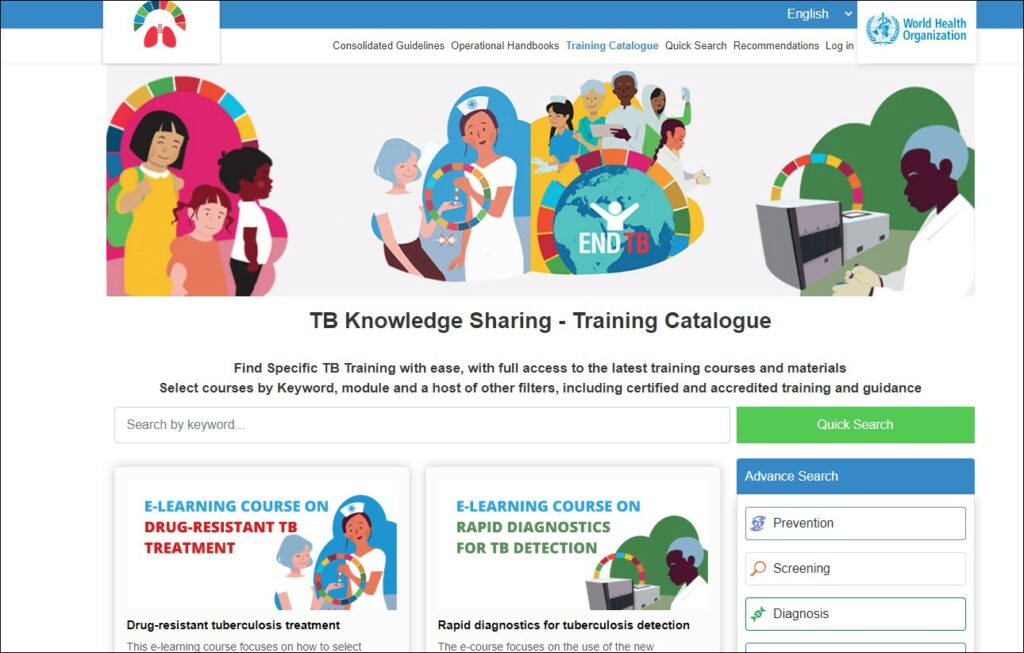
The WHO’s TB Knowledge Sharing Portal offers guidance, operational handbooks, and online trainings for TB program managers and policy makers. Courses include DR-TB Treatment, Rapid Diagnostics for TB Detection, and TB Preventive Treatment.

WHO Digital Resources for Tuberculosis
Description: Provides quick links to practical advice on the implementation of various technologies in support of different components of TB programmes. The site is organized along the four broad functions into which digital technologies are classified: Person-centered Care; Program Management; Surveillance and Monitoring; and eLearning.
Source: WHO
Year: 2023
Time to Complete: Varies
Language: Varies
Link: https://www.who.int/tools/digital-resources-for-tuberculosis/
Prison Health: Managing Outbreaks of Tuberculosis in Prisons
Description: This online course covers tips for recognizing symptoms of TB and explains why it’s important to address TB in prisons, with an in-depth at the prison specific challenges of managing a TB outbreak in a prison and work with your fellow learners to highlight good practice.
Source: UK Health Security Agency, via Futurelearn website.
Time to complete: 3 hours/week over 5 weeks
Languages: English
Link: https://www.futurelearn.com/courses/tb-in-a-prison-setting
Note: This course is accredited for professional development, with a one-time fee for access.
The Importance of Gender in Tuberculosis Data
Description: Addressing gender when monitoring and evaluating tuberculosis (TB) projects helps ensure equity in access and benefits for men and women. This brief establishes the importance of gender in monitoring and evaluation activities and suggests indicators to reveal and explain gender gaps in TB outcomes.
Source: Measure Evaluation
Year: 2017
Languages: English
Link: https://www.measureevaluation.org/resources/publications/fs-17-205f.html
Integrating Gender in the Monitoring and Evaluation of Health Programs: A Toolkit
Description: This toolkit helps international health programs integrate a gender perspective in their M&E activities, measures, and reporting. It is designed for use by health program staff(such as project directors, gender focal persons, program officers, and M&E officers), working in various health sectors (such as HIV; malaria; reproductive, maternal, newborn, and child health; and tuberculosis), and for various health agencies and initiatives (such as the United States Presidents Emergency Plan for AIDS Relief, the Presidents Malaria Initiative, Feed the Future, and Family Planning 2020).
Source: MEASURE Evaluation
Year: 2017
Languages: English
Link: https://www.data4impactproject.org/publications/integrating-gender-in-the-monitoring-and-evaluation-of-health-programs-a-toolkit/
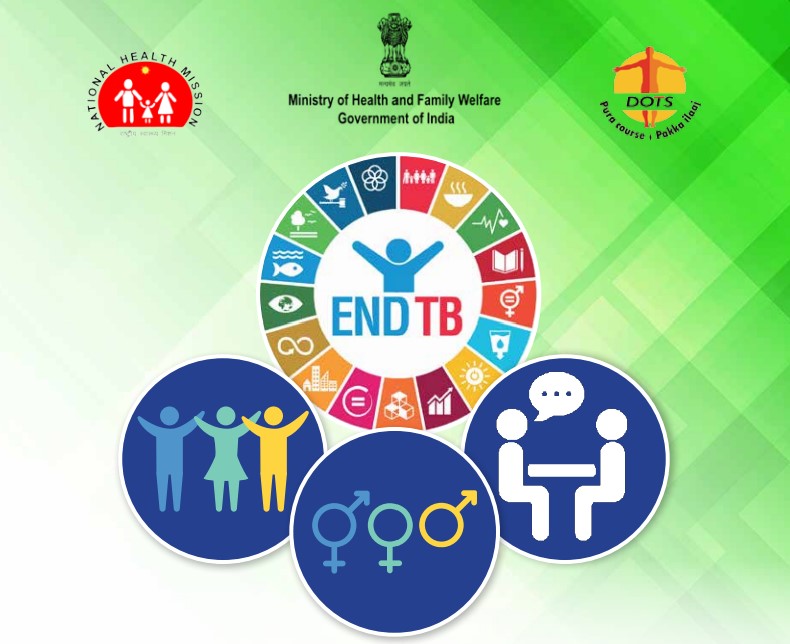
National Framework for a Gender-Responsive Approach to TB in India
Description: India’s Gender and TB framework can serve as a quality example for reflecting the interactions between TB and gender at various levels of a country’s health system, and outlining the influences and impact of gender on the TB burden and response; defining actions which would help move towards a gender-responsive approach; and providing guidance to implement these actions. The framework is in keeping with India’s National Strategic Plan for TB for 2017- 2025 and is intended to spark dialogue at all levels within the TB program and among key stakeholders, thereby strengthening the collective understanding of TB and gender.
Source: Ministry of Health and Family Welfare, Government of India
Year: 2019
Languages: English
Link: https://tbcindia.gov.in/showfile.php?lid=3496
The Global Health Learning Center Monitoring and Evaluation Courses
Description: The GHeL hosts a number of e-courses covering key concepts in M&E for public health including: Data Quality; Data Use for Program Managers; Demographic and Health Surveys: Data Use; and Gender M&E.
Source: USAID
Year: Varies
Time to Complete: Varies
Languages: Varies
Link: https://www.globalhealthlearning.org/program/monitoring-and-evaluation
